Center for Leadership Development Expands Reach
2021 Annual Report:
CLD Plans More Locations for its Mentoring Programs
to Help Black Youth
What does it mean to be a responsible man? That was the weighty topic up for discussion on a Tuesday evening in November, as 23 teenage boys and three adult facilitators gathered in a meeting room at Community Alliance of the Far Eastside (CAFE), a community center serving a large swath of urban Indianapolis. With raised hands, the boys volunteered to take turns and read aloud from a long list of admirable qualities.
“Be a gentleman.”
“Be honest and trustworthy.”
“Keep your shoes clean; people notice.”
As one young man expressed strong support for clean shoes and his peers nodded in agreement, adult facilitator Joshua Posley offered his thoughts. “Keeping your shoes clean is a good habit,” Posley said. “But I would challenge you to have that same integrity about all aspects of your life. Love yourself as much as you love those shoes.”
Integrity, responsibility, love and respect for oneself and others—these are among the core values reinforced during a six-week course called Project MR (Male Responsibility), brought to CAFE by the Indianapolis-based Center for Leadership Development (CLD). Project MR is designed especially for young men—a similar program is offered for young women—but it reflects CLD’s larger vision of success for African American youth.
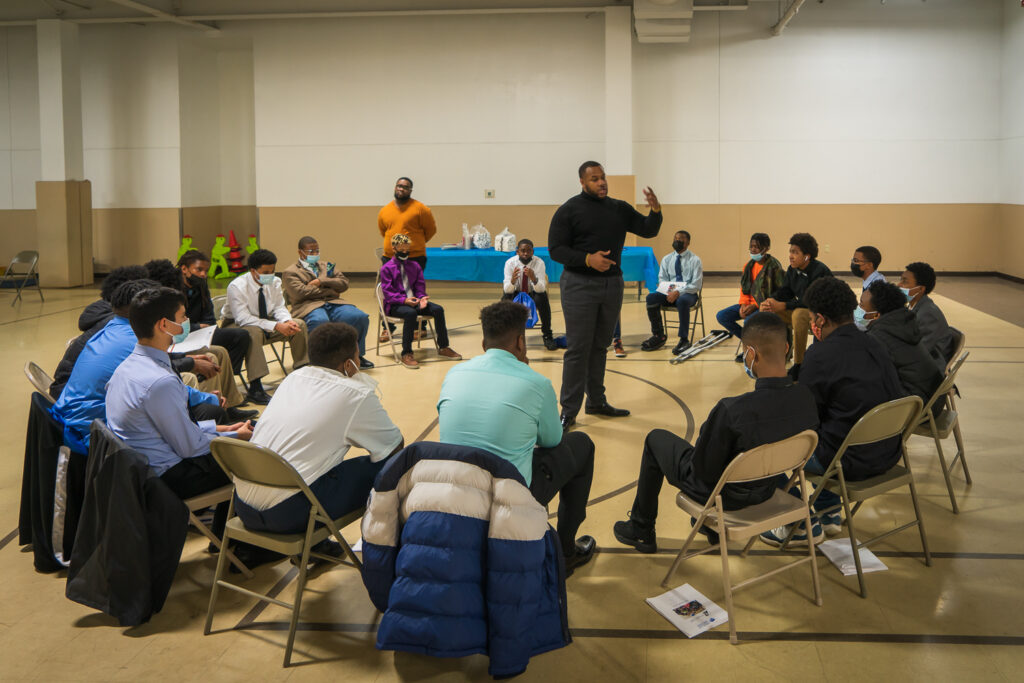
Since 1977, CLD has delivered that vision to tens of thousands of Indianapolis students in fourth through 12th grades and their families. Today, CLD provides 19 enrichment programs focused on character formation, career exploration, mentoring, tutoring, literacy, and college readiness. CLD President Dennis E. Bland points to the organization’s mission, “to foster the advancement of minority youth in Central Indiana as future professional, business and community leaders by providing experiences that encourage personal development and educational attainment.”
While Lilly Endowment has supported CLD since its inception, an $11.6 million grant in 2019 has enabled CLD to expand its capacity to empower hundreds more Indianapolis youth to succeed. Among the grant’s key objectives: expand CLD’s reach through satellite locations and in-school programs across Marion County; build a 20,000-square-foot addition to expand operating capacity; establish support services and mentoring for CLD students attending colleges and universities; and support CLD’s endowment to help assure long-term sustainability.
“Our goal is to build a value system of achievement among African American youth,” Bland says. “If you develop and cultivate the right values in young people, they become assets to the community.”
Principles for Success
CLD participants are more likely to graduate high school and enroll and persist in college than peers who do not participate in CLD’s programs. However, the need, Bland says, is greater than ever, as minority youth in Indianapolis face pervasive challenges.
On average, students in third through eighth grades in Indianapolis Public Schools did not perform well in 2020 on Indiana’s standardized assessments. These test scores diverged dramatically among student populations, revealing large gaps between Black students and their white peers, reinforcing the need to better serve students of color in Indianapolis’ largest school system. Significant achievement gaps also appeared in high school assessments in other school districts throughout Marion County.
Such challenges are not entirely new. During the mid-1970s, a group of Indianapolis civic and business leaders identified several factors they believed were severely limiting Black youth from achieving—or even aspiring to achieve—academic, college and career success.
They saw a lack of exposure to career options and a lack of awareness about the demands, expectations and preparation needed to take advantage of career opportunities. And there weren’t enough Black professionals providing guidance, mentoring, role modeling and simple encouragement to young people.
Endowment funding helped these leaders, including founding president S. Henry Bundles, Jr., launch CLD. It based early programming on what has become known as the CLD Principles for Success: character, education, leadership, service and career.
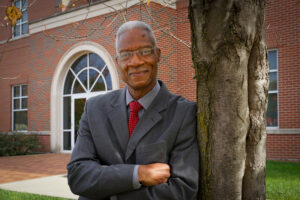 Bland (left), who has led the organization since 2000, was an early beneficiary of CLD efforts to instill those principles. He is a 1982 alumnus of CLD and Indianapolis Public Schools. He graduated from DePauw University and earned a law degree from Indiana University’s Robert H. McKinney School of Law.
Bland (left), who has led the organization since 2000, was an early beneficiary of CLD efforts to instill those principles. He is a 1982 alumnus of CLD and Indianapolis Public Schools. He graduated from DePauw University and earned a law degree from Indiana University’s Robert H. McKinney School of Law.
“These principles are all directed at one outcome: achievement,” says Bland.
Since CLD began, more than 12,000 students have completed its signature Self-Discovery/Career Exploration Project—a 13-week experience in which participants discover how to establish and achieve their personal, educational and career goals—and are considered CLD alumni. CLD estimates that at least another 40,000 students have had some connection to one of the organization’s programs or events.
“At a very basic level, we provide an understanding and appreciation of education and how it impacts the trajectory of your life,” says Bland.
“We do not assume anything about what students may or may not understand about the way in which education serves as a currency in our society, or why character matters. At the most fundamental level, we help students understand what good character is and help them see the value of education.”
Breaking the Distance Barrier
For the past 12 years, CLD has primarily offered programming and services from its two-story, red brick headquarters, located on Dr. Martin Luther King, Jr. Street on Indianapolis’ northwest side.
Not every student from challenging circumstances who could benefit from CLD is aware of the programs or has transportation to the main campus location, Bland notes. Forty-four percent of CLD students come from single-parent households; 47 percent receive free or reduced lunches and 35 percent come from one of seven “hot spot” high-crime ZIP codes.
The Endowment’s 2019 grant is helping CLD to be more intentional in creating satellite locations, and, in the process, raise its profile in neighborhoods throughout Indianapolis. “We want to help students where they are, in neighborhoods where we are needed the most,” Bland says.
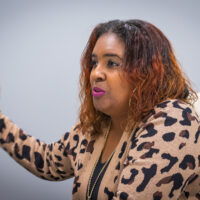 When CAFE CEO Kendra Nowell (right) stepped into her leadership role at the community center in 2020, one of the first calls she made was to CLD, which had recently announced plans to expand its offerings to satellite locations.
When CAFE CEO Kendra Nowell (right) stepped into her leadership role at the community center in 2020, one of the first calls she made was to CLD, which had recently announced plans to expand its offerings to satellite locations.
Nowell grew up on the east side, a good distance from CLD headquarters, but her parents provided transportation to CLD programs and encouraged her participation. CLD was such a crucial part of her educational and professional development that she made sure her own son Jathan, now a freshman at Morehouse College in Atlanta, Ga., also benefited from CLD programs during middle and high school.
Yet Nowell was mindful that not all far east side students have the same opportunities.
“We don’t want distance to be a barrier for our young people to have access to this phenomenal program,” she says.
Community leaders like Nowell, who are familiar with CLD’s reputation, pave the way for CLD to expand and reach a new generation. In November 2021 CLD wrapped up the fall Project MR program at CAFE with a celebration for the participants and their families. Damon Echols, 14, shared some of what he learned.
“They taught us how to be responsible males, do well in school, and also how we can take care of ourselves,” Echols said. “You could have a lot of problems in life if you don’t have good values.”
In 2021, CLD offered programming at several other satellite sites, including Edna Martin Christian Center, Christamore House and The PATH School.
The PATH School
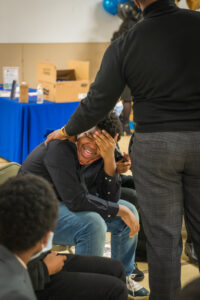 At The PATH School, one of Indianapolis Public Schools’ Innovation Network Schools, founder and Head of School Alicia Hervey welcomed CLD to provide the Project MR program in 2021. With direction from a CLD staff member leading Project MR sessions at the west side school, male teachers and staff met regularly with more than a dozen 6th and 8th grade boys.
At The PATH School, one of Indianapolis Public Schools’ Innovation Network Schools, founder and Head of School Alicia Hervey welcomed CLD to provide the Project MR program in 2021. With direction from a CLD staff member leading Project MR sessions at the west side school, male teachers and staff met regularly with more than a dozen 6th and 8th grade boys.
“It was fantastic for our staff. They reported how powerful it was to see the light bulb come on during conversations with these young men,” Hervey says. “One student said, ‘This is the first time that someone outside of my family told me that they believed in me.’ That comment got us all. Too often, we don’t recognize the power of hearing that someone believes in us.”
The Precious Miss program will be offered at the school in spring 2022, with direction from a CLD staff member and led by PATH School female staff.
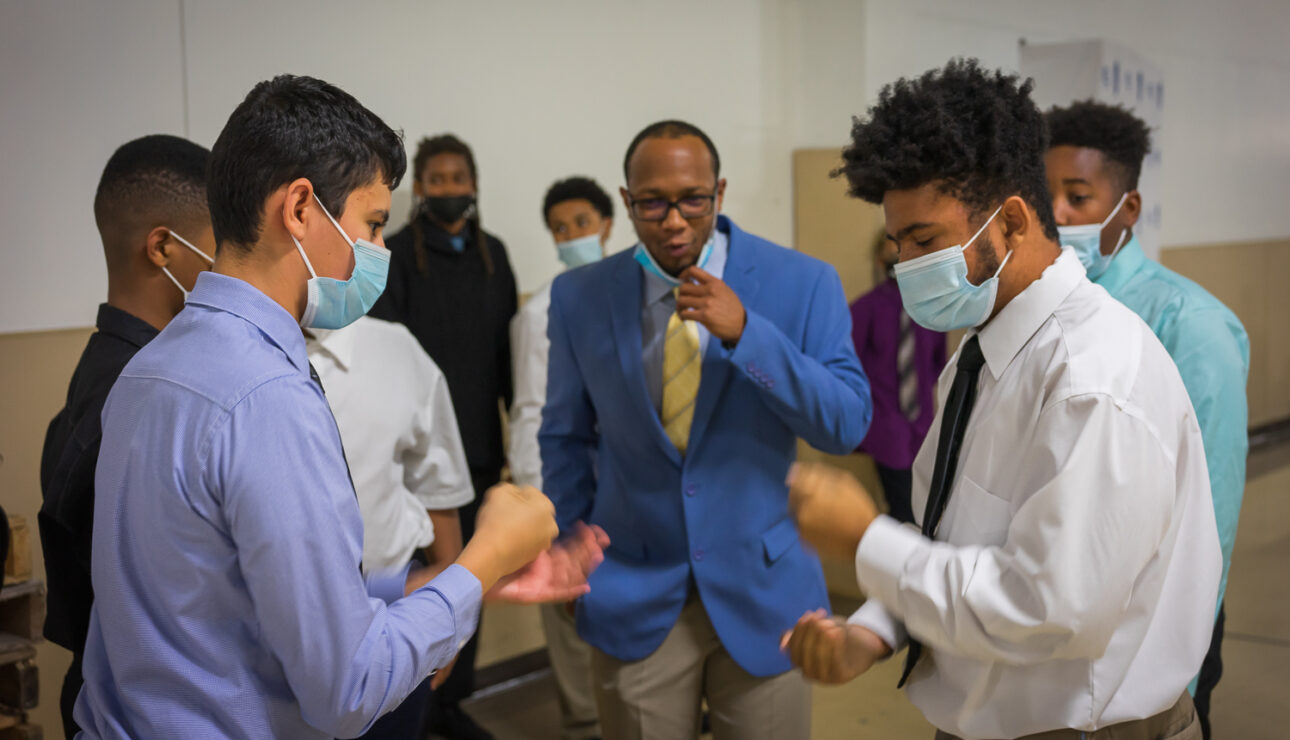
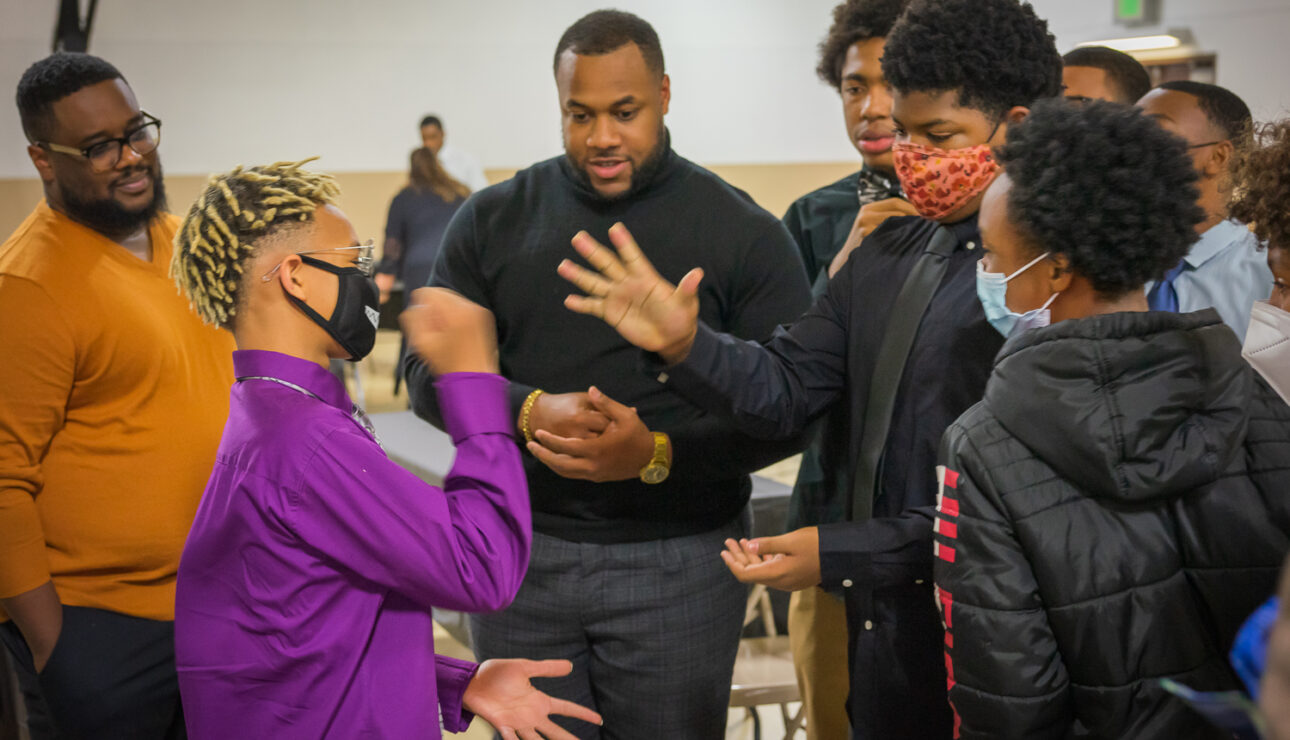
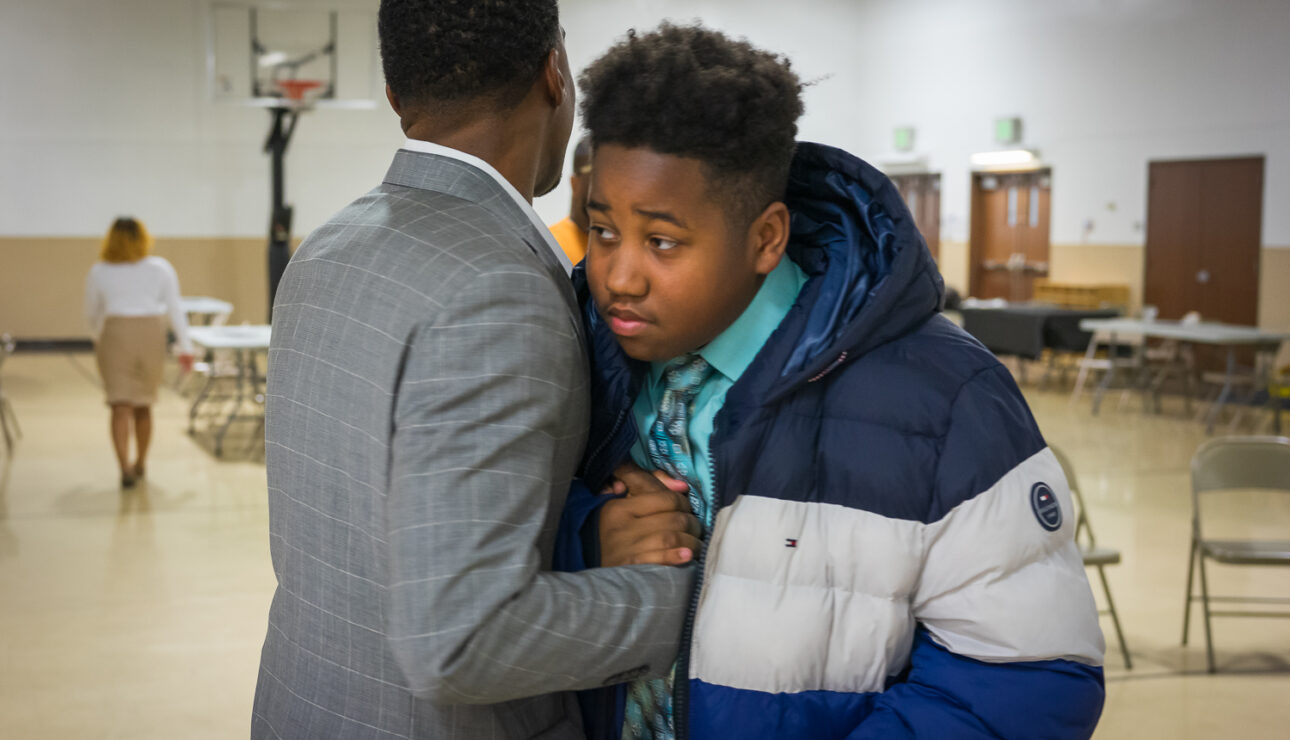
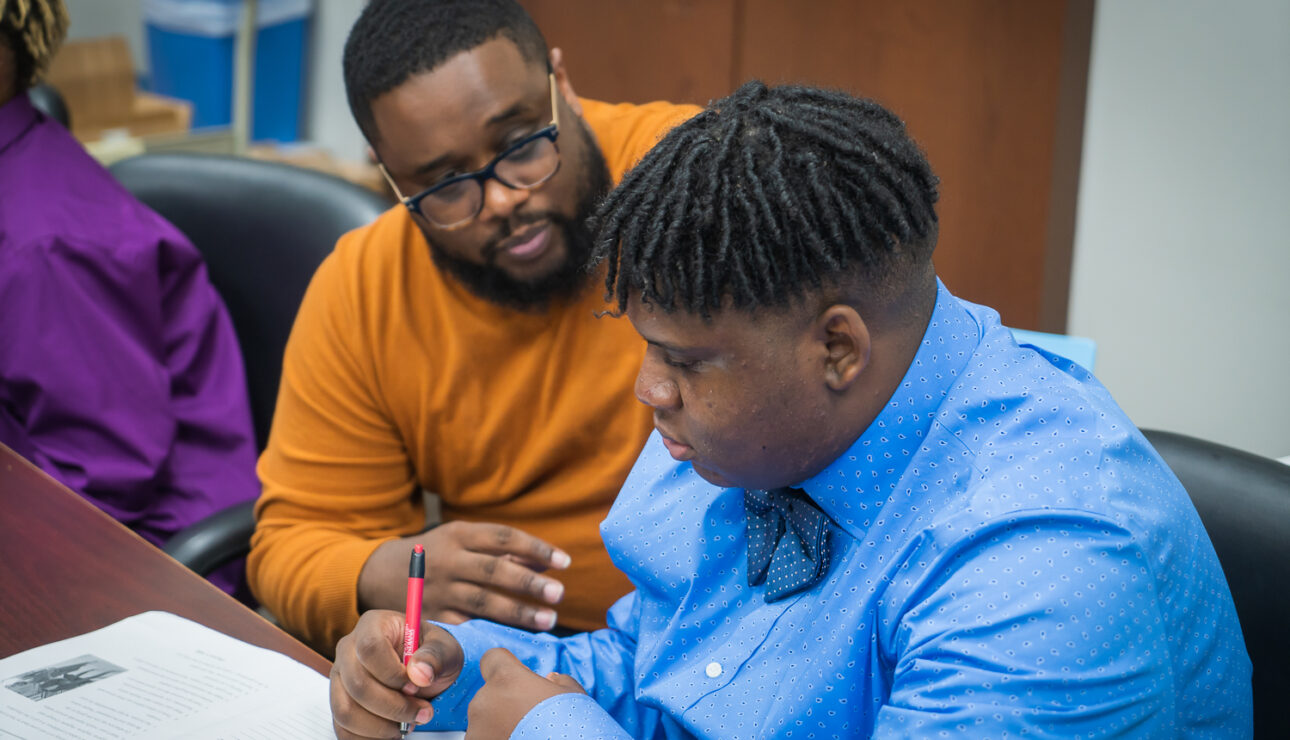
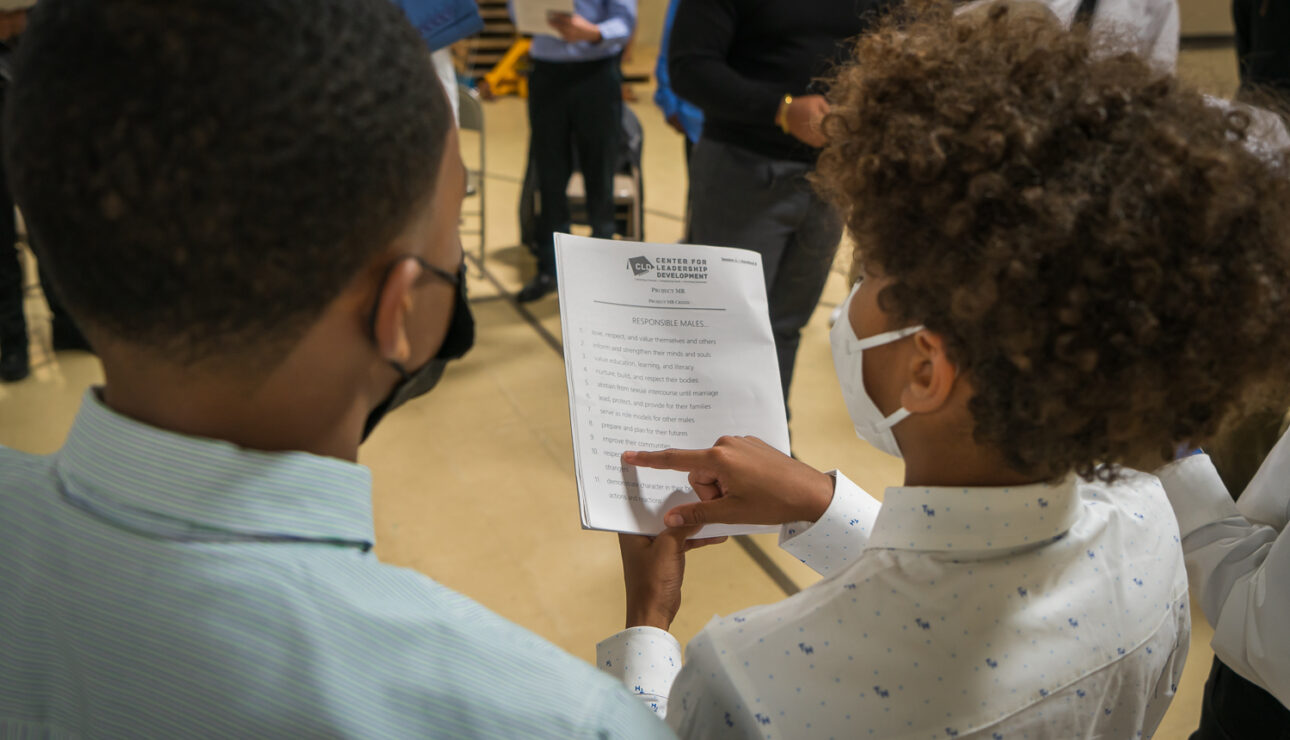
College Connections
Leairra Carter (below) first encountered CLD as a middle school student at the urging of her mother, who signed her up for Precious Miss. The program, like Project MR, is aimed at helping teens understand the importance of developing good character and behavioral habits.
 “I was bullied and, like most teens, I struggled with confidence and self-esteem when I started Precious Miss,” Carter says. “Honestly, it really helped me gain confidence, as a young, Black woman. I took the advice I heard and applied it by sitting in the front of the class and speaking up more. As a result, my grades improved, and I learned how to stand up for myself against bullies.”
“I was bullied and, like most teens, I struggled with confidence and self-esteem when I started Precious Miss,” Carter says. “Honestly, it really helped me gain confidence, as a young, Black woman. I took the advice I heard and applied it by sitting in the front of the class and speaking up more. As a result, my grades improved, and I learned how to stand up for myself against bullies.”
Carter continued with CLD college- and career-prep programs while attending Providence Cristo Rey High School. Now a sophomore at the University of Evansville, Carter is majoring in public health and minoring in medical Spanish. Though she is thriving academically and has adjusted to college life, her CLD counselor still checks in regularly.
“She’s my mentor,” says Carter. “Going into college was a little scary and I definitely had times of self-doubt, but CLD is always there.”
The Endowment’s grant is helping CLD expand that kind of ongoing support for students navigating higher education. Mentors, according to Bland, are helping students overcome challenges that might hinder their ability to excel academically and obtain a college degree.
In addition to staff support, CLD plans to create a network of mentors to work with college students and increase rates of college persistence and completion, especially for students on campuses that have low graduation rates among Black and Latino/Hispanic students. A new internship program is also in the works, as CLD uses community connections and CLD alumni to create opportunities that tie meaningful work experiences to college coursework and future employment, Bland says.
Building for the Future
Key to these endeavors is a third objective: strengthen CLD’s long-term sustainability. A portion of the Endowment grant—$5 million—was dedicated to building CLD’s endowment, which was an important part of the organization’s recent capital campaign. CLD raised an additional $1 million in matching funds from other donors for its endowment.
CLD’s campaign fundraising success continued to bear fruit in August 2021 when CLD broke ground on a 20,000-square-foot expansion to its headquarters. Plans include improved spaces for programming, including CLD’s College Prep Institute.
The College Prep Institute offers students and families free access to licensed guidance counselors who provide reading, math and career assessments, support for college searches, social and emotional support, financial aid literacy, information about internships and referrals to internal and external community resources.
The increased space supports a larger strategy to bring more students—many of whom will encounter CLD at satellite locations—to CLD headquarters for in-depth and specialized one-on-one services. “CLD wants to connect with students for the long term,” Bland says. “We want to enroll more students in more programs, get them to engage with our College Prep Institute, and help them enroll, persist and succeed in college.”
The grant is not intended to point CLD in a new direction, but to expand its reach and impact, Bland says. As it begins its 45th year, CLD programs have helped thousands of Black and minority youth—and has the potential to reach thousands more, he says.
“The grant provides the resources to continue this work by building a master plan for the future,” Bland says. “Our hope is to shift the narrative for African American youth to a future of unlimited potential and abounding achievement.”
This 2019 grant is helping the CLD reach more Indianapolis youth through its programs that provide tutoring, mentoring, career exploration and support for college readiness. Funds will help:
• Establish satellite locations across Marion County.
• Create a mentoring program for CLD alumni attending colleges and universities.
• Expand its headquarters on the near westside of Indianapolis.
• Strengthen the organization’s endowment to help assure long-term sustainability.